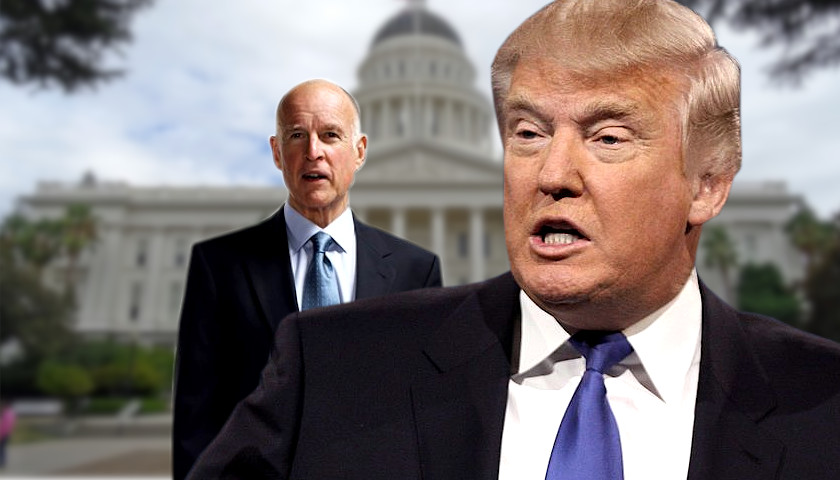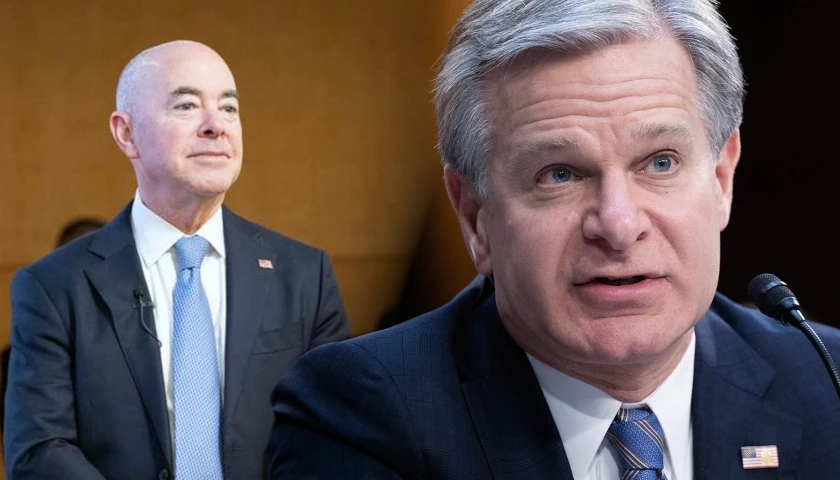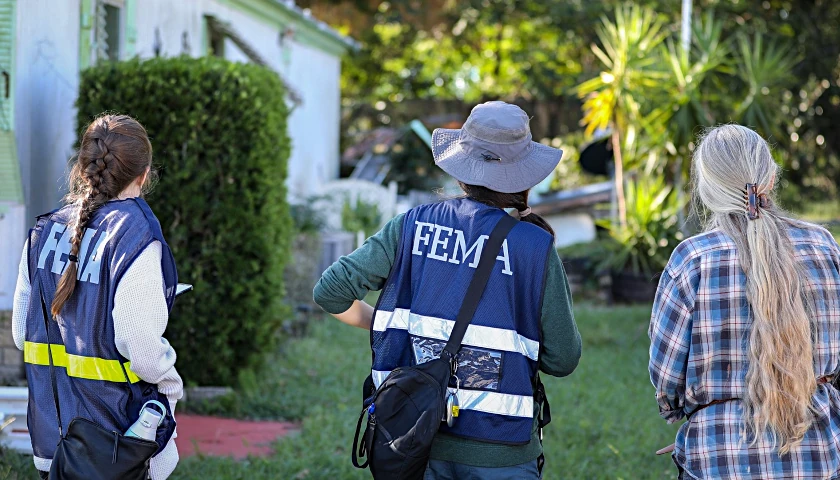by Michael Bastasch
The Trump administration officially ended negotiations with California over a proposed rollback of Obama-era fuel economy regulations.
The White House issued a joint statement with the Environmental Protection Agency (EPA) and Department of Transportation (DOT) Thursday:
 “Today, officials from the White House, Department of Transportation, and Environmental Protection Agency announced that the Trump Administration has decided to discontinue discussions with the California Air Resources Board (CARB) regarding the proposed Safer Affordable Fuel-Efficient (SAFE) Vehicles Rule. Despite the Administration’s best efforts to reach a common-sense solution, it is time to acknowledge that CARB has failed to put forward a productive alternative since the SAFE Vehicles Rule was proposed. Accordingly, the Administration is moving forward to finalize a rule later this year with the goal of promoting safer, cleaner, and more affordable vehicles.”
“Today, officials from the White House, Department of Transportation, and Environmental Protection Agency announced that the Trump Administration has decided to discontinue discussions with the California Air Resources Board (CARB) regarding the proposed Safer Affordable Fuel-Efficient (SAFE) Vehicles Rule. Despite the Administration’s best efforts to reach a common-sense solution, it is time to acknowledge that CARB has failed to put forward a productive alternative since the SAFE Vehicles Rule was proposed. Accordingly, the Administration is moving forward to finalize a rule later this year with the goal of promoting safer, cleaner, and more affordable vehicles.”
The announcement comes as tensions flare between the White House and California over border wall and high-speed rail funding. The Daily Caller News Foundation first reported the administration’s plan to end talks.
The impasse over fuel economy regulations will likely result in EPA revoking California’s ability to set its own tailpipe standards for carbon dioxide emissions.
Talks between EPA and DOT officials the California Air Resources Board (CARB) broke down and no compromise was made, prompting the White House to push ahead with its deregulatory agenda without a deal with the Golden State.
The Trump administration proposed freezing Obama-era fuel economy standards in August 2018, sparking legal action from California and environmental groups. That proposal also laid the groundwork for EPA to revoke California’s ability to set its own auto efficiency standards.
Former EPA official Mandy Gunasekara, who helped craft the proposal, said California never seemed to have any intention of hashing out a compromise with the Trump administration.
“Good faith attempts to negotiate were met with unprepared and uninterested California politicians beholden to a radical left base that were more interested in stall tactics than making a deal to get Americans into safer, more efficient and affordable cars,” said Gunasekara, founder of the pro-Trump advocacy group Energy 45.
“They have actively been working against policies that are in the national interest, including the development of a single, 50-state standard for cars and trucks,” Gunasekara told TheDCNF.
However, a CARB spokesman said the Trump administration broke off talks before Christmas and didn’t respond to the state’s compromise suggestions.
“We concluded at that point that they were never serious about negotiating, and their public comments about California since then seem to underscore that point,” CARB spokesman Stanley Young told Bloomberg.
CARB did not respond to TheDCNF’s request for comment.
The Trump administration hopes to finalize new fuel economy rules by late April. EPA and DOT proposed freezing fuel economy standards in 2020, which would require new cars to get roughly 37 miles to the gallon. The Obama administration mandated new cars get roughly 50 miles per gallon in 2025 as part of its climate change agenda.
California is leading a group of 19 states demanding the Trump administration to abandon its plan to rollback fuel economy regulations. California initiated legal action when EPA and DOT announced their proposal in 2018.
California doesn’t want to lose the authority granted to it by the Obama administration to set its own vehicle emissions standards. More than a dozen other states follow California’s auto rules.
“California wants President Trump to fail,” Gunasekara said. “From day one far-left politicians from Governor Brown to CARB Chair Mary Nichols have been the face of the resistance.”
The auto industry initially prodded the Trump administration to rewrite Obama-era fuel economy standards, but oppose the administration’s plan to freeze standards. Automakers fear the impasse would create a patchwork of requirements, thus favoring one unified standard.
“The auto industry needs regulatory certainty, not protracted litigation,” Joe Hinrichs, Ford Motor Company’s president of global operations said in a statement, according to Reuters.
– – –
Michael Bastasch is a reporter for the Daily Caller News Foundation. Follow Michael on Twitter.
Photo “Donald Trump” by Gage Skidmore. CC BY-SA 2.0. Photo “Jerry Brown” by Jerry Brown.




